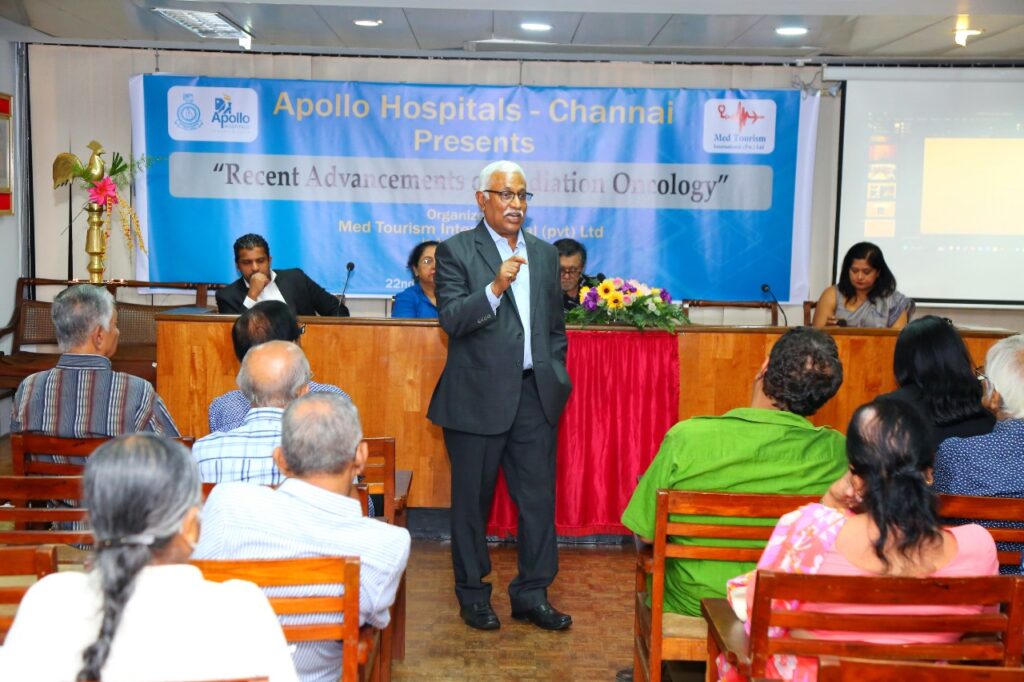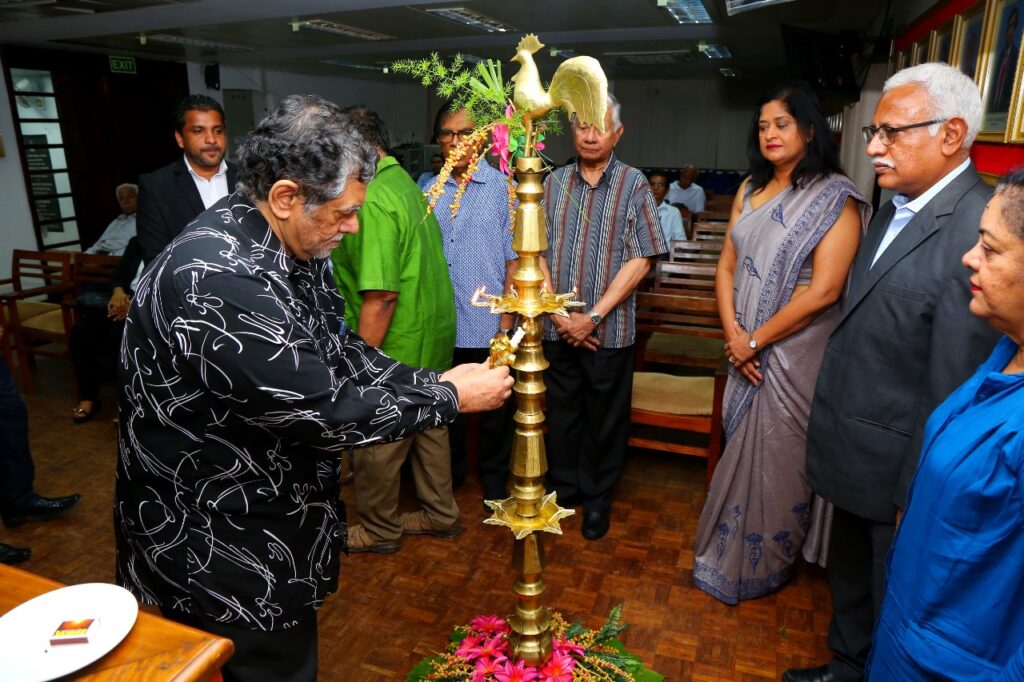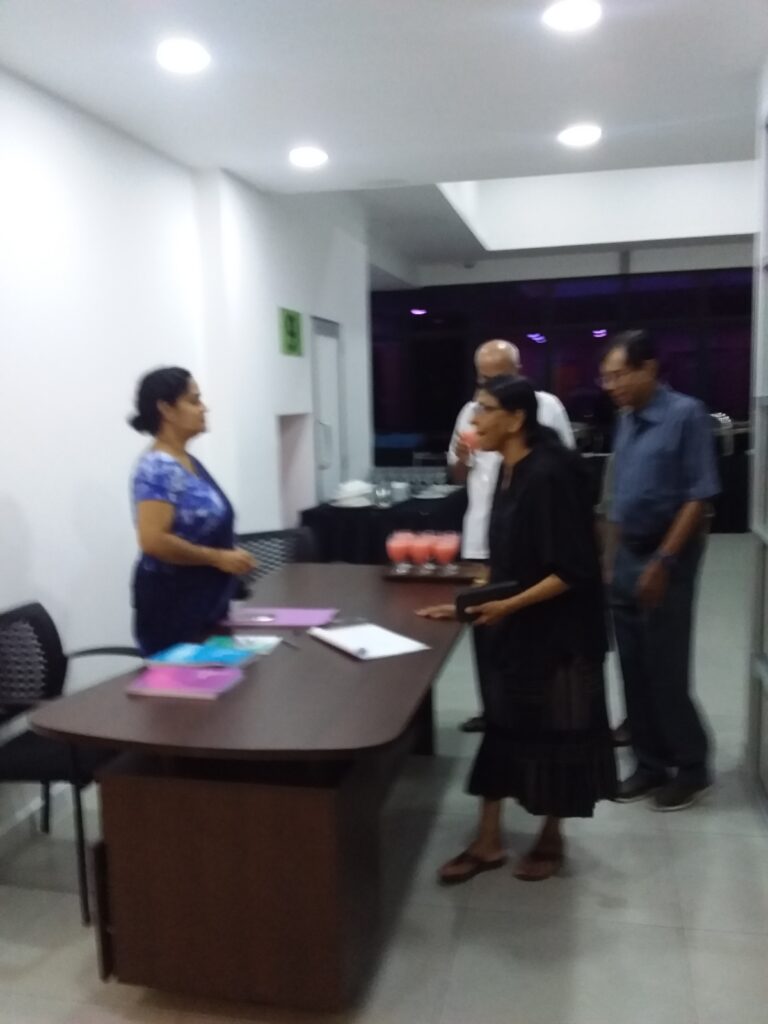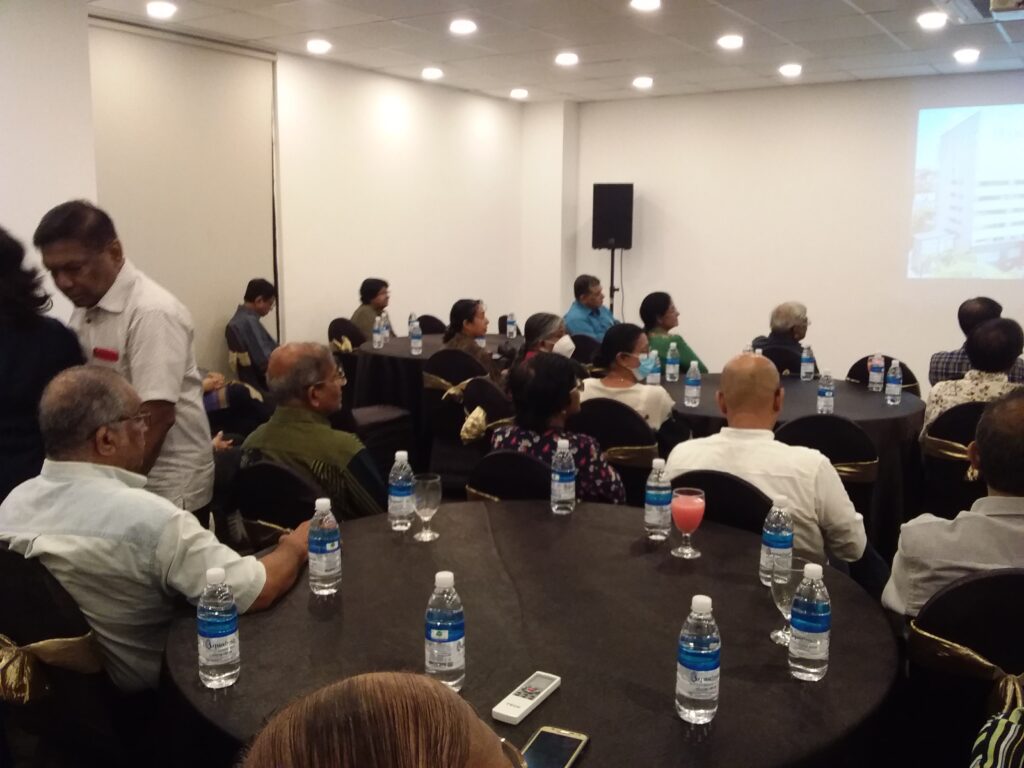A Message From Our Loyal Sponsors -




010 .Seminar on Breaking Boundaries "Recent Advancements in Radiation Oncology "
By Dr.Mahadev Potharaju
Senior Consultant – Radiation Oncology
Apollo Cancer Centre, Chennai.
Held at OPA Auditorium.
**Introduction:**
Welcome to a world where cutting-edge technology and groundbreaking research converge to redefine the landscape of cancer treatment. In this post, we explore the recent advancements in Radiation Oncology, unveiling transformative breakthroughs that are reshaping the future of cancer care.
**Advancement 1: Precision Radiation Therapy Techniques**
In recent years, precision has become the hallmark of radiation oncology. Advanced techniques such as Stereotactic Body Radiation Therapy (SBRT) and Intensity-Modulated Radiation Therapy (IMRT) are enabling oncologists to precisely target tumors while minimizing damage to surrounding healthy tissues. This not only enhances treatment efficacy but also reduces side effects, improving the overall quality of life for cancer patients.
**Advancement 2: Image-Guided Radiation Therapy (IGRT)**
The integration of imaging technologies into radiation therapy has ushered in a new era of accuracy. IGRT allows real-time imaging during treatment sessions, ensuring that radiation is delivered with pinpoint precision. This not only improves the effectiveness of treatment but also enhances the adaptability to changes in the tumor’s size and position over the course of therapy.
**Advancement 3: Immunotherapy and Radiation Synergy**
The synergy between radiation therapy and immunotherapy has emerged as a powerful ally in the fight against cancer. Recent studies have demonstrated that radiation can enhance the effectiveness of immunotherapeutic agents, stimulating the immune system to recognize and attack cancer cells. This combination approach is proving to be particularly promising in the treatment of certain types of cancers, opening new avenues for personalized and comprehensive cancer care.
**Advancement 4: Proton Therapy**
Proton therapy represents a significant stride forward in minimizing radiation exposure to healthy tissues. Unlike traditional photon-based radiation, proton therapy precisely delivers radiation to the tumor, with minimal damage to surrounding structures. This is especially beneficial for pediatric patients and individuals with tumors located near critical organs.
**Advancement 5: Artificial Intelligence (AI) in Treatment Planning**
The integration of artificial intelligence into treatment planning processes is streamlining and optimizing radiation therapy. AI algorithms analyze vast amounts of patient data to create personalized treatment plans, ensuring the delivery of the most effective and efficient radiation doses tailored to individual patient characteristics.
**Conclusion:**
The recent advancements in Radiation Oncology are revolutionizing the way we approach cancer treatment. As we embrace these innovations, we move closer to a future where cancer is not just treatable but can be effectively managed with minimal impact on patients’ daily lives. Stay tuned as we continue to explore the frontiers of medical science, pushing the boundaries of what is possible in the realm of Radiation Oncology.
For more updates on the latest advancements in healthcare, follow our blog and stay informed about the ever-evolving landscape of medical innovation.
**Title: "Empowering Awareness: Navigating the Landscape of Breast-Related Cancers"**
By Dr.Naomal Perera
Consultant Oncologist and General Surgeon
Sponsored By Kings Hospitals Colombo.
**Introduction:**
In the realm of women’s health, the topic of breast-related cancers stands at the forefront of discussions, emphasizing the importance of awareness, early detection, and comprehensive care. Join us on this journey as we delve into the landscape of breast-related cancers, shedding light on vital information that empowers individuals and communities.
**Understanding Breast-Related Cancers:**
Breast-related cancers encompass a spectrum of conditions, with breast cancer being the most prevalent. However, it’s crucial to recognize that other forms, such as ductal carcinoma in situ (DCIS) and invasive lobular carcinoma, also demand attention. Each type requires unique approaches to diagnosis, treatment, and survivorship.
**Risk Factors and Prevention:**
While certain risk factors, such as age and genetic predisposition, are beyond our control, there are proactive measures individuals can take to mitigate their risk. Regular screenings, maintaining a healthy lifestyle, and being mindful of any changes in breast health are key components of prevention. Education is a powerful tool in empowering individuals to make informed decisions about their health.
**Early Detection Saves Lives:**
The adage “early detection saves lives” rings especially true in the context of breast-related cancers. Regular breast self-exams, clinical breast exams, and mammograms play pivotal roles in identifying abnormalities at an early, more treatable stage. Encouraging routine screenings and dispelling myths surrounding mammography are crucial steps in promoting early detection.
**Comprehensive Care and Survivorship:**
A diagnosis of breast-related cancer can be overwhelming, but advancements in medical science have led to more effective treatments and improved outcomes. From surgery and radiation therapy to targeted therapies and hormonal treatments, a multidisciplinary approach ensures comprehensive care tailored to each patient’s unique circumstances. Survivorship programs further support individuals post-treatment, addressing physical, emotional, and psychological aspects of recovery.
**Community Support and Advocacy:**
Building a supportive community is integral to navigating the challenges of breast-related cancers. Support groups, awareness campaigns, and advocacy efforts contribute to reducing stigma, fostering understanding, and championing access to quality care for all individuals affected by these conditions.
**Conclusion:**
As we navigate the landscape of breast-related cancers, our commitment to awareness, education, and support becomes paramount. By fostering a culture of openness, dispelling misconceptions, and embracing proactive health practices, we can collectively contribute to early detection, improved outcomes, and empowered survivorship.
Join us in this ongoing dialogue about breast health. Together, let’s create a future where breast-related cancers are not just treatable but preventable, and where every individual receives the support and care they deserve.
03. Seminar on - "Golden Years, Golden Health: Navigating the Terrain of Geriatric Medicine "
Title: “Golden Years, Golden Health: Navigating the Terrain of Geriatric Medicine”**
By Dr.Kelum Palpola – Consultant Physician & Specialist in Geriatric Medicine.
**Introduction:**
As life expectancy continues to rise, the field of geriatric medicine becomes increasingly pivotal in ensuring the well-being and vitality of our aging population. Join us in exploring the multifaceted world of geriatric medicine, where specialized care and a holistic approach are paramount in supporting our seniors to lead fulfilling and healthy lives.
**Understanding Geriatric Medicine:**
Geriatric medicine is a specialized branch of healthcare dedicated to addressing the unique health needs and challenges faced by older adults. As individuals age, they often contend with a variety of medical, cognitive, and functional issues that require a tailored and comprehensive approach to care.
**Holistic Care for Seniors:**
The essence of geriatric medicine lies in its holistic perspective. Beyond treating specific medical conditions, geriatricians focus on the broader aspects of seniors’ well-being. This includes factors such as mental health, social interactions, nutrition, and mobility – all crucial components in promoting a high quality of life for older adults.
**Common Health Concerns:**
Geriatric medicine encompasses the management of a spectrum of health issues commonly faced by seniors. From chronic conditions like diabetes and hypertension to cognitive disorders such as dementia, geriatricians are trained to navigate the complexities of aging, providing personalized care that considers the unique needs of each patient.
**Promoting Independence and Quality of Life:**
One of the primary goals of geriatric medicine is to help seniors maintain their independence and overall quality of life. This involves developing individualized care plans that address not only medical issues but also lifestyle factors, enabling older adults to continue engaging in activities they enjoy and fostering a sense of purpose.
**The Role of Caregivers:**
Geriatric medicine recognizes the crucial role that caregivers play in the well-being of older adults. Whether family members, friends, or professional caregivers, support networks are integral in providing holistic care for seniors. Geriatricians often work closely with caregivers to ensure they have the resources and knowledge needed to assist their loved ones effectively.
**Innovations in Geriatric Care:**
Advancements in medical research and technology continue to shape the landscape of geriatric medicine. From telemedicine solutions for remote consultations to specialized geriatric assessments, these innovations contribute to more accessible and effective care for older adults.
**Conclusion:**
In the realm of geriatric medicine, every patient is a unique story deserving of individualized and compassionate care. By understanding the challenges and opportunities that come with aging, geriatric medicine strives to make the golden years truly golden, embracing the wisdom and vitality that seniors bring to our communities.
Join us in celebrating the field of geriatric medicine – a cornerstone in ensuring that our elders continue to thrive and enjoy the best possible health in their later years.
SRI LANKA DRUG INDEX 2020 – SLDI 2020
This project began in early January 2019 and was completed in July of 2020. This is the electronic edition of the Sri Lanka Drug Index 2010, which was started by IMPA once more with guidance from Ms. Chinta Abeywardane and Prof. Rohini Fernandopulle. Prof. Rohini Fernandopulle and Ms. Chintha Abeywardane oversaw SLDI2020 as well. Additionally, IMPA is extremely appreciative of the NMRA, Prof. Asita De Silva, Chairmen, and Dr. Kamal Jayasinghe, CEO, for providing the funding necessary to make SLDI2020 a reality.
SRI LANKA OUTPATIENT FORMULARY – SLOPF – Project
This project was started in early January 2019 and finished in July 2020. With assistance from Ms. Chinta Abeywardane and Prof. Rohini Fernandopulle, IMPA launched the electronic version of the Sri Lanka Drug Index 2010 once more. Additionally in charge of SLDI2020 were Prof. Rohini Fernandopulle and Ms. Chintha Abeywardane. Furthermore, IMPA expresses its sincere gratitude to the NMRA, Prof. Asita De Silva, Chairmen, and Dr. Kamal Jayasinghe, CEO, for contributing the funds required to realize SLDI2020.
MORBIDITY ANALYSIS AND REPORT SYSTEM – MAARS Project
The Morbidity Analysis and Report System is an additional project that is currently in the planning stages. Information will be updated on this page. Numerous funding agencies have received project proposals. I’m expecting a response soon.

**Title: "Breaking Boundaries: Recent Advancements in Radiation Oncology"** By Dr.Mahadev Potharaju Senior Consultant – Radiation Oncology Apollo Cancer Centre, Chennai. Held at OPA Auditorium.
**Advancement 1: Precision Radiation Therapy Techniques**
In recent years, precision has become the hallmark of radiation oncology. Advanced techniques such as Stereotactic Body Radiation Therapy (SBRT) and Intensity-Modulated Radiation Therapy (IMRT) are enabling oncologists to precisely target tumors while minimizing damage to surrounding healthy tissues. This not only enhances treatment efficacy but also reduces side effects, improving the overall quality of life for cancer patients.







